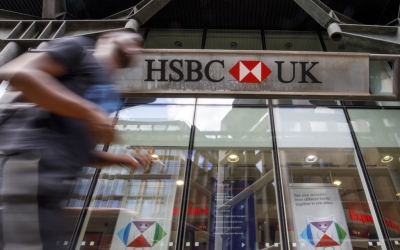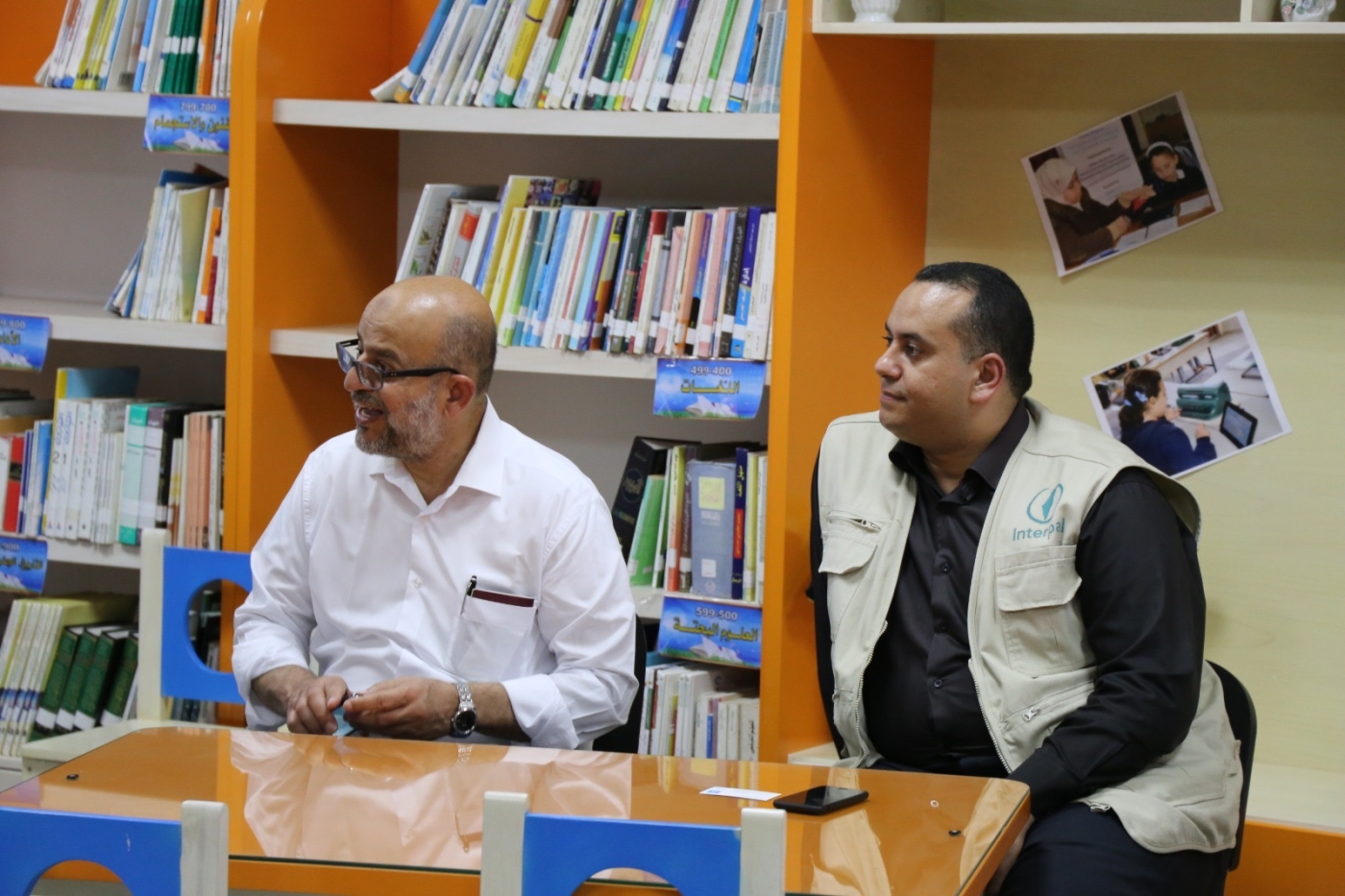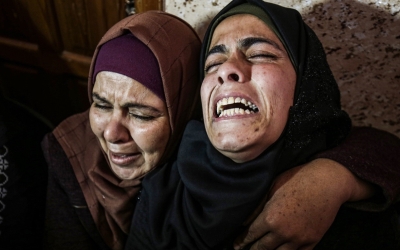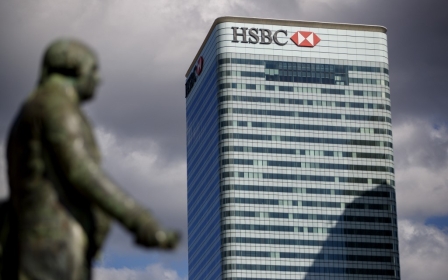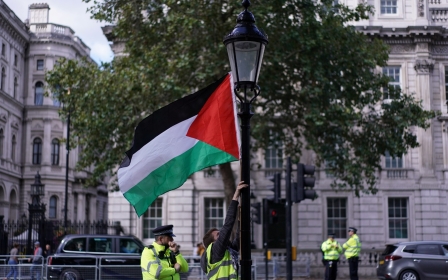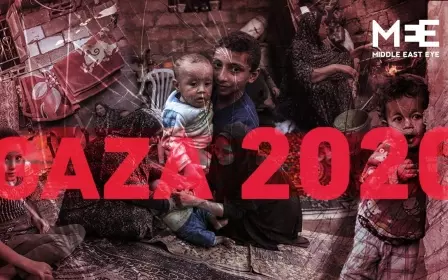Banking restrictions on Interpal threaten to sever aid 'lifeline' for Palestinians
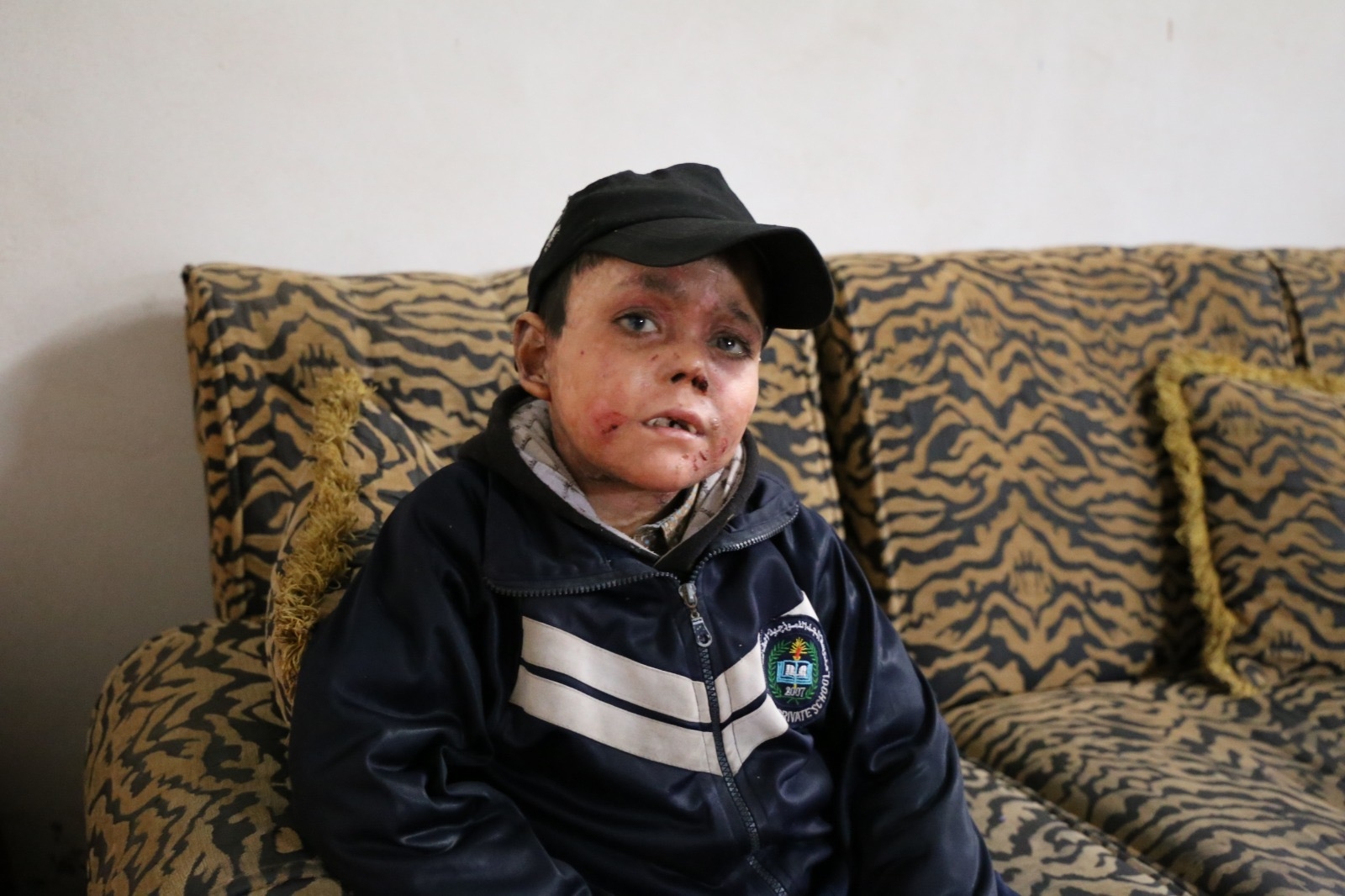
For almost a decade, Hani Salameh has received regular humanitarian aid provided by the Palestinian Relief and Development Fund, better known as Interpal, to support himself and his family of eight in the besieged Gaza Strip.
But restrictions imposed on the British-based charity by financial institutions have left the 50-year-old anxious that the monthly payments and donations relied on by many Palestinians in Gaza, the West Bank and the refugee camps of Jordan and Lebanon may not be sustainable.
Salameh told Middle East Eye his relationship with Interpal began when he travelled to Egypt to seek medical treatment for his then six-year-old son Fahed in 2011.
Fahed, now 15, suffers from a rare skin disease. It impedes his ability to walk and affects his general wellbeing. The chronic condition can be managed with treatment - but that is expensive.
“Since nine years ago, Interpal has been sponsoring monthly treatment for Fahed at a cost of up to $300,” said Salameh, who added that his son's health had improved as a result.
In addition, Salameh, who suffers a disability which prevents him from working, receives aid payments so that he can support his family.
The family used to live in a rented house where they were often unable to pay the monthly rent. But with Interpal's help he has been able to build a small house on 100 square metres of land that his father gave him north of Gaza City.
According to Mahmoud Lubbad, the director of Interpal's regional office in Gaza, Salameh is one of countless Palestinians whose lives the charity has touched in some way.
“Interpal is a lifeline for many of us,” Lubbad told MEE. “Now we are afraid that this lifeline is going to be cut.”
In the latest blow to Interpal, British bank HSBC has told its customers in the UK that it will no longer process standing-order donations to the charity from later this month, without offering any explanation why.
The threat to Interpal posed by such actions is serious enough that auditors noted in the charity's latest accounts that the withdrawal of card processing services by credit card companies in 2018 and the potential loss of access to banking facilities were “key material uncertainties that may affect [Interpal's] ability to continue as a going concern”.
Yet on the ground in Gaza, Interpal is considered one of the main organisations helping to address the needs of a two-million strong population within which more than half live in poverty and a majority are dependent on humanitarian assistance.
Interpal, which this year is celebrating 25 years of operations, provides social welfare, health services, educational and employment opportunities for many people in Gaza, as well as contributing to vital infrastructure projects.
In the healthcare sector, Interpal provides medicines and medical supplies, with specific programmes of support for the elderly, the disabled and the poverty-stricken sick.
In the development sector, it has helped to build desalination plants to address the enclave's chronic water shortage, as well as distributing small plastic tanks to needy families, and providing public places such as hospitals, schools and nurseries with large metal tanks that are regularly filled with drinking water.
Supporting students
Suleiman Mansour, 35, is one of those who has received financial assistance provided by the charity, which he said had enabled him to complete a master's degree in communications engineering at the Islamic University in Gaza City in 2017.
Mansour told MEE: “Without Interpal assistance, which provided me with electronic boards and tools, I would not have been able to complete my studies.”
Since completing his thesis, Mansour has published two scientific papers and in 2018 he was offered PhD scholarships in Turkey and Germany. However, he was unable to take up these opportunities because of restrictions on travel out of Gaza due to the siege.
Mansour, who is currently director of the information technology department at the Palestinian Legislative Council, the Palestinian territories' parliament, said that he and many other students had benefited from Interpal's education programme.
Until 2016, Interpal supported about 400 to 500 students annually by paying their tuition fees as well as providing other support for the education sector, such as funding research and environmental conservation projects and providing school bags, stationary and notebooks to disadvantaged school children.
But last year the number of students supported fell to fewer than 100. If the programme is suspended, Mansour fears that others with ambitions to gain a university education will no longer be able to afford to study, and that many more would face hardship.
Job creation programme
Israa Tulbah, 24, is also grateful to Interpal for the experience she has gained through the charity's four-year job-creation programme.
In 2016, Tulbah gained a position working at Interpal's headquarters in Gaza after being among 100 people chosen from about 1,000 applicants for a place on the scheme.
She says her work has given her insight into Interpal's extensive contribution to health, education and relief projects within Gaza.
She says she would have liked to continue working for the organisation, but the financial pressures that she has seen it face over the past few years have left her concerned for her future and worried that her salary might not be paid.
Eventually she was able to find another job and moved on.
“I was afraid of losing my job because of the funding and donation crisis. I would not have left Interpal otherwise."
Lubbad, Interpal's director in Gaza, said that financial pressures had hit the job-creation programme by limiting short-term employment opportunities and the establishment of small projects that generated income for poor and low-income families.
Until a few years ago, Interpal was able to provide short-term job opportunities for about 250 people annually. But last year that number was just 50. Since the beginning of this year it has not been able to offer any temporary opportunities.
Financial issues also threaten Interpal's social welfare programme, which accounts for about 60 percent of its budget in Gaza and benefits about 4,000 children who are orphaned, disabled or with other urgent needs, according to Lubbad.
If Interpal is unable to continue its work, Hani Salameh told MEE, it would be people like his sick son who would suffer the most.
"Why does a humanitarian charity that helps the poor and the needy get attacked, when it seeks the good of all?" he asked.
Middle East Eye propose une couverture et une analyse indépendantes et incomparables du Moyen-Orient, de l’Afrique du Nord et d’autres régions du monde. Pour en savoir plus sur la reprise de ce contenu et les frais qui s’appliquent, veuillez remplir ce formulaire [en anglais]. Pour en savoir plus sur MEE, cliquez ici [en anglais].


